Financing of care, support and assistance to secure ... [part 2]
Excerpt:
- Strengthening of self-responsibility for health. Risk of dependency is also due to the life style influenced.
- Rehabilitation in each output location corresponds to the human dignity, and reduced costs. Care must not be reduced to basic needs, but must include the promotion.
- No more money for new “homes” spill it! Example Sweden: the doubling of the efficiency in the aid system due to waiver homes, and the need for comprehensive care money in the hands of the Affected.
- Civic Engagement strengths, a “Quasi-volunteer” with the financial recognition has to be developed. The legalization efforts are not more brought us.
- Furthermore, it is necessary: to increase efficiency in the state administration and demographic Counteract by family-friendly policy.
NR-Abg Dr. Franz-Joseph Huainigg, ÖVP speaker for people with disabilities, presented in the three weeks leading up to the no-choice on 28.09.2008, at its Homepage 21 positions, demands and requests to the disability policy.
Here in Katja's and my discussion in Blog posts FJH21 Forum – Link to all my posts: katja.at/day/fjh21
Post DsH_ad_FJH21-13_2 (2008.09.24-11:20):
Item 9: further development of the care system by the Austria Fund ... [Part 2] (FJH - original text see below)
The following program of a backup is to be constructed:
- Active prevention and self-responsibility for healthThe so-called health care system, to describe better than disease System (is paid for being sick), has a very strong Lobby. For Acute medicine, about ten times the expenditure is used for long-term care as a solidarity performance, although at least 80 % of the costs through responsible Lifestyle and conscious diet preventable. In the case of small cuts in the direction of self-responsibility and “private liability” is called the Boo-word “two class medicine” (I know, rather from political competitors 1) and all the forces of this System Verdi mobilized and immediately the fingers are again, of the “Holy cow” left. Now, however, that almost all the causes and risk factors have a direct influence on the risk of long-term care. To mention just a few: blindness and amputations as a result of nicotine abuse and Obesity (Diabetes) late consequence of, paralysis after stroke; life-style and diet - related cardiovascular disease and vascular damage are only the most prominent causes of death, but often the need for care precedes. Preventable disease risk factors have an extremely high amount of as causes for long-term care. Comprehensive education about risk factors and Motivation for self-responsible Health, ultimately, on the incentive systems of the health insurance, the impact of savings on cost-of-illness and the long-term objective of substantial avoidance of the need for care as a disease consequence.
- Rehabilitation and rehabilitation nursing: A right to the best possible recovery and compensation of the impairment with the help of suitable auxiliary means in each output location promotes a humane approach to those Affected. Through this vision, the overall long-considered time - cost of care is reduced and the fundamental rights respected, have an equal participation in society. The present struggle and bureaucracy to get the necessary tools financed, is degrading and unnerving. The influence of Economism in the care sector has a shortage of staff, staff turnover and Resignation, a professional human care worthy in many places to become long ago a anonymous handling, care and storage mentality. As a society, we have to offer people in need of care to be better. Care is understood not only as basic care and life support, but as a needs-oriented promotion of the human person in its entirety. A rehab care, which aims in all of the actions on the Welfare of the needy people, the scale.
- The efficiency of the aid system – from the home system to adopt: Short-sighted is also built on aussondernde,institutional care in so-called “homes”, and although these wishes hardly anyone, and this System will soon be completely unviable. Waking up in this area is urgently needed. The decision of the Sweden about 25 years ago, to say goodbye to the home system and need comprehensive care to give money to the Hand, it is the demographic challenge to cope with. It is proven by studies that the efficiency of the Outpatient of the help system has doubled. The costs do not spiral to drift further into the boundless, and thus have less funding, support for care at home, we need to dispense quickly and decisively to the further Development of the institutional system and even the existing capacities to reduce. The claims are in the German and Austrian “Home to home” initiatives (www.daheim-statt-heim.katja.at) formulated.
- Civic Engagement develop: Many of the resources of the civil society not to remain currently unused, without the activation of the help system of the future, survival will be. In place of previous (Large)family structures today and in the future wide forces, neighborhood and civic engagement – regional associations and actions – to cover parts of the total assistance needs. The demographic change may just consist in a Mix of informal and professional assistance. In addition to the “real” volunteer work must be in Austria, only a “Quasi-volunteer” develop. The assistance is to be exercised against an expense allowance, which go beyond a pure reimbursement of Expenses also. Financial recognition of voluntary services, the time is now and necessary. From my point of view, this compensation should amount to about seven to ten euros per assistant-hour, night-time standby for about three to five euros. A full exemption for any tax obligation of such social transfer performance and vast increase of various exemption and exemption limits would have to go hand in hand. For more Details, see “Health-care crisis – please next step!”. The tax due legally an equality of friendship and mutual help with family care, so no charges charges care money. The entire unnecessary legalization botch the last two years was counter-productive and has mitigated the nursing shortage is not a single aspect of it.
- Increase efficiency in the state administration: As long as we can afford for the dwarf state of Austria the luxury to hold twelve legislative institutions, we need not be surprised if the funds for important tasks. In a recent reminder from the court of auditors on budgetary discipline (letter of 17..09.2008 of the Austrian people's party parliamentary club) is urged, in the face of currently discussed (some now in the Parliament agreed) measures to compensate for Inflation, once again, a comprehensive constitutional and administrative reform, with the savings volume, you can sure build a great care system (with appropriate priority).
- Demo Graphic Counter: For braking in front of the Überalterungs Crash, it is soon too late, the “stopping distance” takes a long time. Still, we would be able to cushion the impact from the 30-ies, if we raise birth rates. A family-friendly policy does not apply to propagate it, but to finally implement.
Further to the contributions DsH_ad_FJH21-13_3 and DsH_ad_FJH21-13_4
Back to post DsH_ad_FJH21-13_1
Gerhard Lichtenauer, Austrian citizens ' initiative “the Home home” (www.daheim-statt-heim.katja.at), and Katja's Blog (www.katja.at)
Original text to FJH21-13 source: http://www.franzhuainigg.at/cgi-bin/fjh21.cgi?_13 (15.09.2008)
FURTHER DEVELOPMENT OF THE CARE SYSTEM BY THE AUSTRIA FUND
“The financing of care must also be ensured in the future. The establishment of the Austria Fund is to.assure that” this proposal for the further development of our care system, Vice-Chancellor Wilhelm Molterer called in his “speech on the state of the Nation”
Our care system needs in view of the demographic development urgently a further development, is. Now, there is a first funding proposal, how this might be done. The care Fund, as Wilhelm Molterer suggests, is to be fed from the Proceeds of privatization, and similar to the family burdens equalisation Fund act. In the field of care new care could be created ways and tried. – About day structures, so that family carers can also go to a employment. It needs also financially viable model for older and disabled people, who do not need Round-the-clock care, but only by the hour support.
In the further development of the care system, in addition to securing financing prior to the discharge to a care-giver. 80 percent of all people in need of care are cared for at home.
In addition to demands and concerns, but there are also improvements that could be implemented: It is able to create through the 24-hour care in a legal and affordable System for elderly and disabled people who have need-the-clock care. This was an important first step, since care may not take place in a legal grey area.
By the amendment to the Healthy - and hospital care act may now also perform Personal assistants and personal assistants in the context of the 24-hour care for activities legal.
AND WHAT DO YOU MEAN?
If you are affected, What problems they have in the care sector?
What measures it takes to support carers more?
Are you afraid of care to be in need of?
- Note: This article was posted in the Blog of the NR-Abg Dr. Franz-Joseph Huainigg (ÖVP) ↩
Translated by Yandex.Translate and Global Translator
- Related Posts (most related posts), value in brackets indicates the topic of:
- Care financing part 4: ignorance is the main problem of justice is needed! [100%]
- Care financing part 3: Just a base for just "nursing Care" [100%]
- Care financing, part 1: paradigm shift from Economism to human value [100%]
- Nursing care reform part 4: responsibility and justice truck [72.2%]
- Nursing care reform part 3: the shadow sides of the care system [72.2%]
- Nursing care reform part 2: misuse of maintenance money? There are actually! [72.2%]
- Nursing care reform, part 1: 15 years care money a "success story"? [72.2%]
- [D+197] Constitution of the people would in the minds of [70.5%]
- Self-representation as an expression of and way of inclusion [64.1%]
- [D+255] of life risk to the "home" - the organized look away [Random - 26.8%]

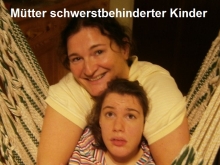
 AT: BICEPS-INFO
AT: BICEPS-INFO DE: Bi. "At home, instead of home" e. V.
DE: Bi. "At home, instead of home" e. V. EN: firm, people, and rights
EN: firm, people, and rights EN: kobinet-nachrichten
EN: kobinet-nachrichten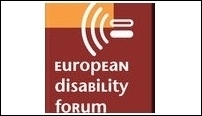 EDF – European Disability Forum
EDF – European Disability Forum ENIL – European Network on Independent Living
ENIL – European Network on Independent Living

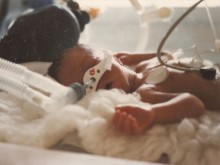


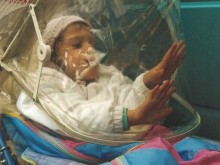

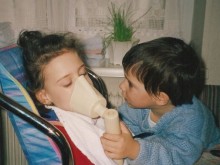


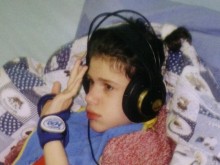

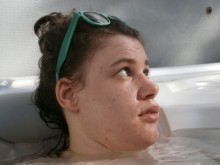

 AT: "at Home, instead of home"
AT: "at Home, instead of home" EN: ForseA
EN: ForseA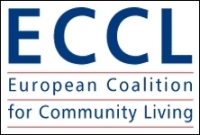 ECCL – European Coalition for Community Living
ECCL – European Coalition for Community Living
Leave a comment